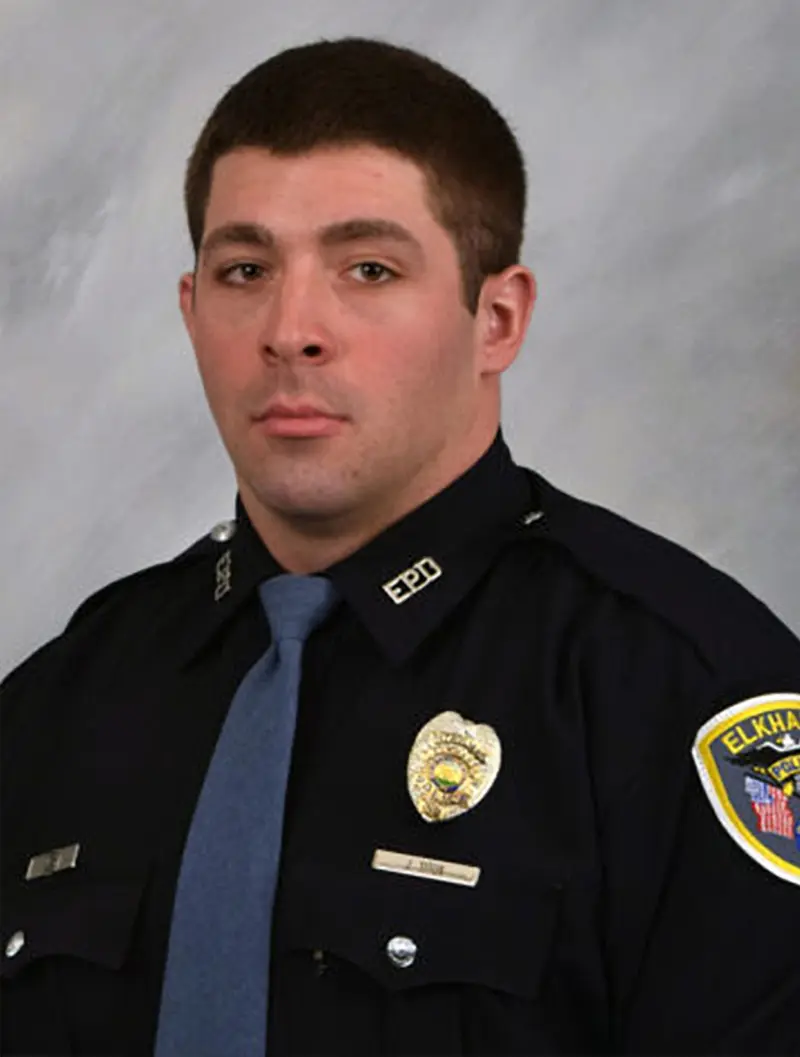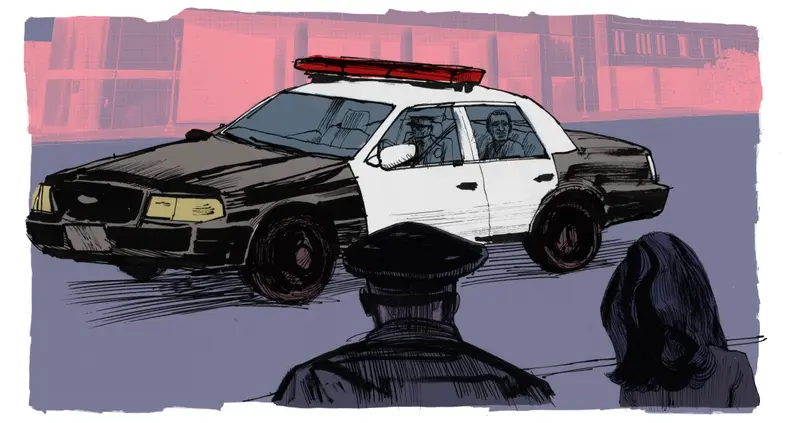ProPublica is a nonprofit newsroom that investigates abuses of power. This story was originally published in Dispatches, a weekly newsletter that spotlights wrongdoing around the country and journalism from our newsroom.
Having come to journalism after dropping out of law school (where I discovered I didn’t want to be a lawyer) and dropping out of the Peace Corps (where I discovered I can’t grow vegetables in the Sahara), I started small, working at newspapers with names you probably would not recognize.
My first job was at the Valley Courier in Alamosa, Colorado, where my beat was sports and courts. I’d drop into a trial in the afternoon, perhaps a stabbing, then cover high school basketball games at night. My second job was at the Times-News in Twin Falls, Idaho. It was there, on the night cops beat, that I had a police department source who would call the newsroom and leave, anonymously, a message saying, “The little birdy has flown,” which was his signal for me to call him. From there I went to the Times-Advocate in Escondido, California.
I came to appreciate, and love, local news. I learned how much people care about school bonds and that you spell their street name right. I learned, from interviewing 13-year-old Jimmy Dodds at the Twin Falls County Fair, about the joys of riding the Gravitron. (“If you throw up, it flies back in your face,” he told me.) And I learned that our work can live on long after we leave — that a story’s impact can endure for years.
I was reminded of that earlier this month, because of a court hearing in northern Indiana.
When I began working at ProPublica in the fall of 2017, the Valley Courier was 30 years behind me. But I still loved local news. And, as luck would have it, ProPublica was just then launching an initiative called the Local Reporting Network.
The mission of the Local Reporting Network, or the LRN as we call it, is both simple and righteous. Mindful of the many local news organizations that are shrinking or disappearing, ProPublica partners with local newsrooms strapped for resources, to help them execute bold investigative projects. The first group of LRN partners published stories in 2018. And one of that first group’s members was Christian Sheckler, then a reporter at the South Bend Tribune in Indiana.
Sheckler was not the kind of reporter you see in moviedom. He does not swear. He is unerringly polite, and I do mean unerringly: I’ve never seen him say a mean thing to anyone. He is earnest and humble. But don’t underestimate him; he is also dogged — and a true believer in journalism as a force for good.
When Sheckler applied to the LRN, he was 29. He’d been a reporter for six years, four in South Bend and two in Fort Wayne. He wanted to dig into the criminal justice system in nearby Elkhart, where, according to his application letter, there was a “decades-old pattern of misconduct.” He believed reporting could produce answers about why some people had been wrongfully convicted and “an accounting” from public officials.
To do what he wanted, he needed time. In words that will resonate with every reporter who’s ever churned out five, 10 or 15 stories a week at a small or midsize daily, Sheckler wrote that he needed “a sabbatical from the press conferences and school board meetings that, in today's understaffed newsroom, can stand in the way of the most ambitious investigative journalism.”
In Escondido, I once had six stories in one day’s paper. Reading Sheckler’s application, I knew where he was coming from. And I wanted to go back there, if he was willing. I asked Sheckler if he’d be up for me partnering with him on this project, and he graciously agreed.
We set to gathering up records, which proved surprisingly difficult as a judge barred us from getting an array of documents that are routinely available to the public. She barred us from seeing police reports included in court files. She barred us from seeing trial exhibits that had been shown to jurors. Only after we filed a complaint with Indiana’s public access counselor were we able to get some, but not all, of the records we wanted. Meanwhile, when we asked the city of Elkhart for certain other records, we were told the documents were in storage, in a box, and that other boxes were in front of that box, and the city didn’t have anyone available to move the boxes blocking the path to the box with the records.
Sheckler and I wrote a dozen stories in 2018 and then more in years after. We investigated how poor policing led to wrongful and questionable convictions. We exposed dubious investigative practices and a lack of police accountability. We found that of the Elkhart Police Department’s 34 supervisors, 28 had disciplinary records and seven had opened fire in at least one fatal shooting. One officer was promoted to sergeant after receiving 11 suspensions, 15 reprimands and one verbal warning. (“He was promoted in the wake of all this?” one criminal justice expert said to us. “That’s very strange. ... I have no explanation for this. ... This is bizarre.”)
In the wake of our joint investigation, the city’s police chief was suspended for 30 days. Then he resigned. The city’s mayor abandoned his reelection campaign. The city commissioned an outside study of its police force, which found that officers were viewed in the community as “cowboys” who engage in “rough treatment of civilians.” The 97-page study criticized the department’s lack of accountability and its “vague and non-descriptive” use-of-force reports. In 2022, Keith Cooper, a man whose wrongful conviction we’d written about in 2018, received $7.5 million in a record settlement with the city, which apologized for its handling of his case.
This year, the fallout has continued. In 2018, Sheckler obtained a video showing two Elkhart police officers repeatedly punching a handcuffed man inside the police station’s detention area. We wrote up what the video revealed, and ProPublica’s Lucas Waldron analyzed and edited the footage. In 2019, a federal grand jury indicted the two officers on civil rights charges. Both officers eventually pleaded guilty to one count each. Last year, one of the officers, Cory Newland, was sentenced to 15 months. (His lawyers, in an email to ProPublica, wrote that Newland “long ago accepted full responsibility,” adding, “It is clear to us and to all who know Cory, that his conduct was not representative of his true heart and character as a person.”) Joshua Titus, the second officer, appeared for sentencing just this month — and received a year in prison.
At the sentencing hearing, in federal court in Hammond, Indiana, Titus expressed gratitude for the video being made public by the Tribune and ProPublica. He’d been dealing with severe post-traumatic stress disorder from his service in the Air Force, Titus said. “I was in denial of my psychological issues,” he said, adding that the video’s release “opened my eyes and gave me a renewing of my soul.” Publication of the videotaped beating also “helped change the culture at the Elkhart Police Department,” he said.
Titus’ attorney, Mike Allen, of Cincinnati, is a former police officer himself. Allen told me of Titus, “He’s a good man that served his country, and served his country well and honorably, who made a mistake and is now paying for it.” Titus is already getting counseling, Allen said, and is likely to get more help in the federal prison system. As for what Titus said in court about being thankful for the video’s release, Allen told me, “The thing about him is, if he says it, he means it.”

In journalism, we sometimes indulge in the fantasy that our work will always have immediate impact, with every flaw we’ve exposed getting addressed and resolved within days, weeks or months. Readers want that too. But the reality is sometimes slow, incremental change over years. The criminal prosecution launched against these two officers didn’t conclude until five years after we first reported on the videotaped beating.
In 2021, I did a second tour with the LRN, partnering with Nashville Public Radio’s Meribah Knight to write about children being illegally arrested and jailed in Rutherford County, Tennessee. Knight has stayed with this story for more than three years, doing work that has resonated in and beyond Tennessee. After we published our first story, 11 members of Congress sent a letter asking the Department of Justice to open an investigation into Rutherford County’s juvenile justice system. Subsequently, the judge who had been in charge of that system announced she would not run for reelection.
Now the story is the subject of a podcast series hosted by Knight and produced by Serial, ProPublica, Nashville Public Radio and The New York Times. The first two episodes just dropped. I hope you’ll listen.
In South Bend, the Tribune’s top editor when the Elkhart project was published was Alan Achkar. (He’s now the executive editor at the St. Louis Post-Dispatch.) Newsrooms are accustomed to fielding a lot of complaints, Achkar said. But with the Elkhart stories, readers wrote and called to say thank you. “I stopped counting the emails,” Achkar said. “It was encouraging, it was heartening, it was validating.”
As for Sheckler, he’s now 34. In the years since he began digging into Elkhart, he and his wife have had two children. Last year, Sheckler left the Sound Bend Tribune — and journalism. In journalism, “the pay’s not great,” Sheckler said. He wanted more stability for himself and his family. But he also wanted to keep doing work that he believed in, that was important and rewarding, so he took a job at the Notre Dame Exoneration Justice Clinic. He’s the clinic’s staff investigator. “I wanted to still be in a fight, on the right side of a fight. And this was a great opportunity to do that,” he said.
Sheckler is grateful for his time at the Tribune. And he’s grateful his work in Elkhart made a difference: “People took the reporting seriously. There was accountability.”
In the five years since Sheckler and I worked together to investigate Elkhart, the LRN has expanded and created change in communities across the country. To date, ProPublica, through the LRN, has partnered with 71 newsrooms on 90 projects. Exceptional reporters have done extraordinary work in Alaska; Memphis; Palm Beach, Florida; Rhode Island; Vallejo, California; and points beyond.
At the Tribune, another reporter took over the public safety beat that Sheckler had covered for years. That reporter has since left, and now the Tribune is looking to hire a replacement. The Tribune has put up a job posting for a public safety reporter, looking for someone who will “write about serious crime, scrutinize police tactics and spotlight social issues,” and chase challenging stories “with passion.”






